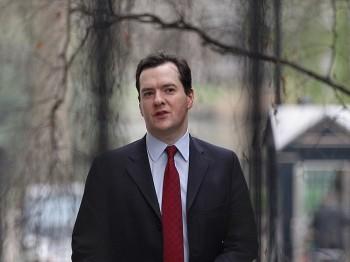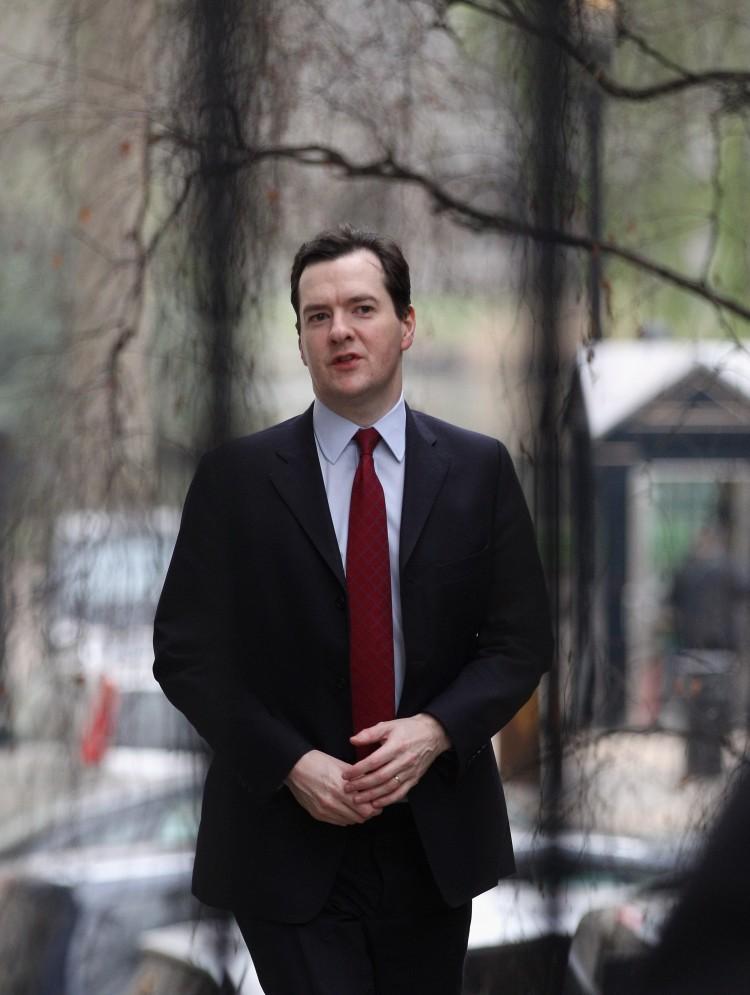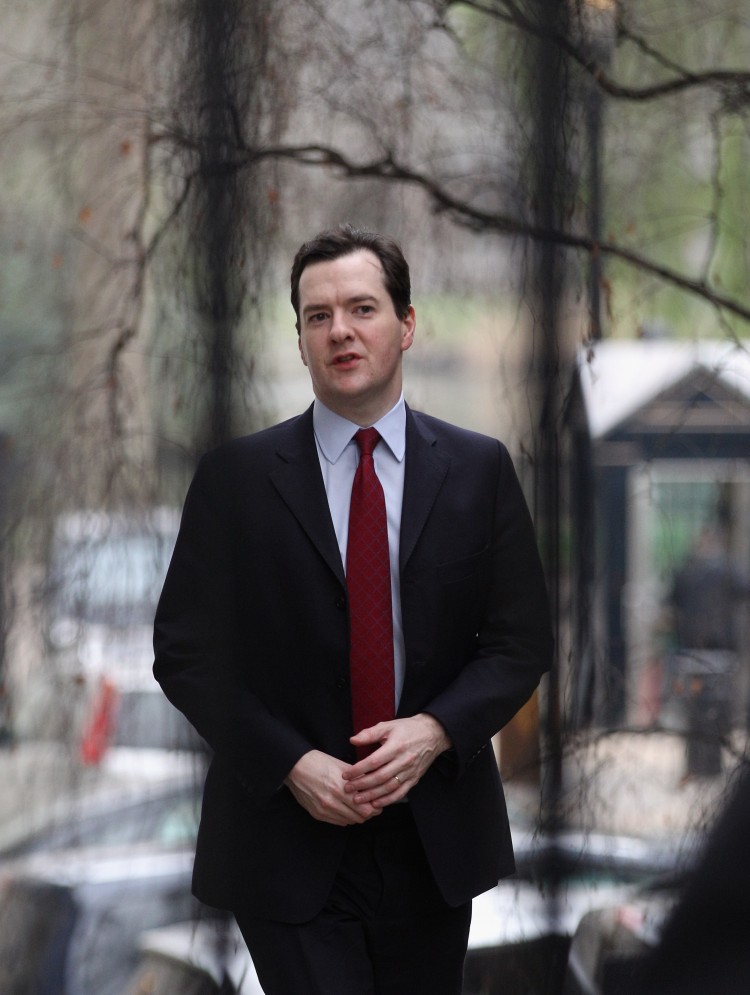UK’s GDP Grows by Just 0.2% in Second Quarter
Though GDP grew by 0.2%, output in the production industries decreased by 1.4%. The Royal wedding, tsunami and warm weather have been suggested for this drop.

Chancellor of the Exchequer George Osborne arrives in Downing Street to attend the weekly Cabinet meeting. Osborne said the latest GDP figures for the UK were 'positive news'. Oli Scarff/Getty Images
|Updated:





